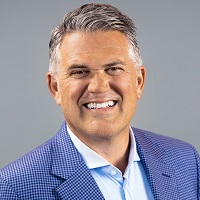Why You Shouldn’t Ignore Investing in Commodities
Investors can help reduce risk, hedge against inflation and diversify their portfolio by investing in commodities, such as gold, silver and copper.


Profit and prosper with the best of Kiplinger's advice on investing, taxes, retirement, personal finance and much more. Delivered daily. Enter your email in the box and click Sign Me Up.
You are now subscribed
Your newsletter sign-up was successful
Want to add more newsletters?

Delivered daily
Kiplinger Today
Profit and prosper with the best of Kiplinger's advice on investing, taxes, retirement, personal finance and much more delivered daily. Smart money moves start here.

Sent five days a week
Kiplinger A Step Ahead
Get practical help to make better financial decisions in your everyday life, from spending to savings on top deals.

Delivered daily
Kiplinger Closing Bell
Get today's biggest financial and investing headlines delivered to your inbox every day the U.S. stock market is open.

Sent twice a week
Kiplinger Adviser Intel
Financial pros across the country share best practices and fresh tactics to preserve and grow your wealth.

Delivered weekly
Kiplinger Tax Tips
Trim your federal and state tax bills with practical tax-planning and tax-cutting strategies.

Sent twice a week
Kiplinger Retirement Tips
Your twice-a-week guide to planning and enjoying a financially secure and richly rewarding retirement

Sent bimonthly.
Kiplinger Adviser Angle
Insights for advisers, wealth managers and other financial professionals.

Sent twice a week
Kiplinger Investing Weekly
Your twice-a-week roundup of promising stocks, funds, companies and industries you should consider, ones you should avoid, and why.

Sent weekly for six weeks
Kiplinger Invest for Retirement
Your step-by-step six-part series on how to invest for retirement, from devising a successful strategy to exactly which investments to choose.
Investors are regularly searching for ways to maximize returns while minimizing risk. One often overlooked avenue for achieving this balance is investing in commodities. In my opinion, maintaining a certain percentage of a portfolio in commodities can increase diversification and reduce the risk of the overall portfolio. Let's explore the reasons why investing in commodities should not be ignored.
What are commodities?
Commodities are tangible assets of raw materials or agricultural products that can be bought and sold in standardized quantities. Commodities range from precious metals to energy resources like oil and natural gas and even include agricultural products like corn and wheat. While we are still likely buying stocks (“paper”), investing in commodities means buying an interest in companies that mine or manufacture or grow tangible goods.
Whether it’s food, minerals or lumber, all these goods are commodities that trade on the market. So, when we are investing in a company that supplies a commodity, we not only want to study that company’s fundamentals, but we also want to understand the supply and demand characteristics of the underlying commodity.
From just $107.88 $24.99 for Kiplinger Personal Finance
Become a smarter, better informed investor. Subscribe from just $107.88 $24.99, plus get up to 4 Special Issues

Sign up for Kiplinger’s Free Newsletters
Profit and prosper with the best of expert advice on investing, taxes, retirement, personal finance and more - straight to your e-mail.
Profit and prosper with the best of expert advice - straight to your e-mail.
We can likely agree on the continued demand for electric vehicles and the movement toward electrification as the world progresses toward a more renewable energy base and away from fossil fuels. Of course, this will not happen overnight — it will take time — but there is an undeniable demand for goods that support the electrification theme.
Well, what metal is crucial in all things electric? Read on to understand the opportunities that exist with commodities and how they allow us to tap into the fundamental drivers of the global economy.
How to invest in commodities
The typical investor cannot just go out and buy a pound of copper, a brick of gold or a bushel of corn or soybeans and trade it, although I suspect some have tried. Luckily, the minds on Wall Street have developed various methods and vehicles that can be utilized by investors to express interest or exposure in a series of commodities or a specific one.
You can invest in commodities through various instruments such as funds, ETFs or futures contracts that allocate the capital under their management to various commodities or companies in the commodity sector. Each method has its own advantages and considerations, and investors should carefully evaluate their risk tolerance, investment objectives and available resources before making a decision.
The revenues and likely prospects for growth of these investments are determined by the price of the underlying commodity. It is important to understand that many commodities are traded on the futures exchange, where there are contracts for purchase at a certain time at a certain price. Given that, there are specific risks that investors need to understand before investing in such vehicles.
Things to be aware of when investing in commodities
While there are numerous advantages to investing in commodities, it's essential to be aware of the associated risks and considerations. Commodities can be highly volatile, and market trends and timing can greatly impact their performance.
Additionally, global events such as geopolitical tensions or natural disasters can impact commodity prices. Careful monitoring and regular analysis are necessary to navigate these complexities successfully. If you work with a financial adviser, this is something they will be doing on your behalf.
Benefits of commodities
Including commodities in an investment portfolio offers several notable benefits. Firstly, commodities have historically exhibited a low correlation with traditional asset classes like stocks and bonds. This means that when other investments decline, commodities may provide a cushion against losses.
Secondly, commodities have the potential to act as a hedge against inflation. As prices rise, the value of commodities often increases, providing a valuable store of wealth.
Lastly, in certain market conditions, commodities can offer attractive returns due to supply and demand dynamics.
Highlighting gold, silver and copper
When considering specific commodities, gold, silver and copper stand out as compelling investment options. Gold has long been regarded as a safe-haven asset, maintaining its value even during times of economic uncertainty. Silver also offers similar hedging benefits and has industrial applications as well. Copper, known colloquially as the “red metal,” is a vital component in infrastructure development, making it an attractive option as economies grow and demand for construction materials rises.
Given its tendency to predict the changing economic winds, copper is the element that is required in all electric functionality. CNBC reported that demand for copper could nearly double by 2035, and mining companies are having a hard time keeping up. Copper’s role in energy transition has led to bullish bets on the metal, but at the same time, multiple forces in politics and the market are making moves that could destroy demand.
Commodities: An alpha-generator
In an inflation-centric economy, having exposure to commodities is likely an alpha-generator, providing further excess returns over time. By including commodities, such as gold, silver and copper, in your portfolio, investors can potentially reduce risk, hedge against inflation and tap into unique market opportunities. However, it's crucial to stay informed, understand the risks involved and continually reassess your investment strategy.
As you explore the world of commodities, remember to speak with your financial adviser about your financial goals and risk tolerance. Investing in commodities should not be overlooked as a viable strategy for diversifying and balancing your investment portfolio.
ALINE Wealth is a group comprised of investment professionals registered with Hightower Advisors, LLC, an SEC registered investment adviser. Some investment professionals may also be registered with Hightower Securities, LLC, member FINRA and SIPC. Advisory services are offered through Hightower Advisors, LLC. Securities are offered through Hightower Securities, LLC. All information referenced herein is from sources believed to be reliable. ALINE Wealth and Hightower Advisors, LLC have not independently verified the accuracy or completeness of the information contained in this document. ALINE Wealth and Hightower Advisors, LLC or any of its affiliates make no representations or warranties, express or implied, as to the accuracy or completeness of the information or for statements or errors or omissions, or results obtained from the use of this information.
Related Content
- Why Investors Should Be Patient With Commodities
- The Kiplinger 25: Our Favorite No-Load Mutual Funds
- Nine Best Commodity ETFs to Buy Now
- Eight Best Energy ETFs to Buy
Profit and prosper with the best of Kiplinger's advice on investing, taxes, retirement, personal finance and much more. Delivered daily. Enter your email in the box and click Sign Me Up.

Peter J. Klein, CFA®, CAP®, CSRIC®, CRPS®, is the Chief Investment Officer and Founder of ALINE Wealth, a wealth management firm that specializes in providing clients with financial planning advice for every stage of their lives. Along with Peter’s deep financial wisdom, he adds considerable acumen in philanthropy, helping clients navigate family trusts, institutions, and nonprofits.
-
 Quiz: Do You Know How to Avoid the "Medigap Trap?"
Quiz: Do You Know How to Avoid the "Medigap Trap?"Quiz Test your basic knowledge of the "Medigap Trap" in our quick quiz.
-
 5 Top Tax-Efficient Mutual Funds for Smarter Investing
5 Top Tax-Efficient Mutual Funds for Smarter InvestingMutual funds are many things, but "tax-friendly" usually isn't one of them. These are the exceptions.
-
 AI Sparks Existential Crisis for Software Stocks
AI Sparks Existential Crisis for Software StocksThe Kiplinger Letter Fears that SaaS subscription software could be rendered obsolete by artificial intelligence make investors jittery.
-
 Social Security Break-Even Math Is Helpful, But Don't Let It Dictate When You'll File
Social Security Break-Even Math Is Helpful, But Don't Let It Dictate When You'll FileYour Social Security break-even age tells you how long you'd need to live for delaying to pay off, but shouldn't be the sole basis for deciding when to claim.
-
 I'm an Opportunity Zone Pro: This Is How to Deliver Roth-Like Tax-Free Growth (Without Contribution Limits)
I'm an Opportunity Zone Pro: This Is How to Deliver Roth-Like Tax-Free Growth (Without Contribution Limits)Investors who combine Roth IRAs, the gold standard of tax-free savings, with qualified opportunity funds could enjoy decades of tax-free growth.
-
 One of the Most Powerful Wealth-Building Moves a Woman Can Make: A Midcareer Pivot
One of the Most Powerful Wealth-Building Moves a Woman Can Make: A Midcareer PivotIf it feels like you can't sustain what you're doing for the next 20 years, it's time for an honest look at what's draining you and what energizes you.
-
 I'm a Wealth Adviser Obsessed With Mahjong: Here Are 8 Ways It Can Teach Us How to Manage Our Money
I'm a Wealth Adviser Obsessed With Mahjong: Here Are 8 Ways It Can Teach Us How to Manage Our MoneyThis increasingly popular Chinese game can teach us not only how to help manage our money but also how important it is to connect with other people.
-
 Looking for a Financial Book That Won't Put Your Young Adult to Sleep? This One Makes 'Cents'
Looking for a Financial Book That Won't Put Your Young Adult to Sleep? This One Makes 'Cents'"Wealth Your Way" by Cosmo DeStefano offers a highly accessible guide for young adults and their parents on building wealth through simple, consistent habits.
-
 Global Uncertainty Has Investors Running Scared: This Is How Advisers Can Reassure Them
Global Uncertainty Has Investors Running Scared: This Is How Advisers Can Reassure ThemHow can advisers reassure clients nervous about their plans in an increasingly complex and rapidly changing world? This conversational framework provides the key.
-
 I'm a Real Estate Investing Pro: This Is How to Use 1031 Exchanges to Scale Up Your Real Estate Empire
I'm a Real Estate Investing Pro: This Is How to Use 1031 Exchanges to Scale Up Your Real Estate EmpireSmall rental properties can be excellent investments, but you can use 1031 exchanges to transition to commercial real estate for bigger wealth-building.
-
 Should You Jump on the Roth Conversion Bandwagon? A Financial Adviser Weighs In
Should You Jump on the Roth Conversion Bandwagon? A Financial Adviser Weighs InRoth conversions are all the rage, but what works well for one household can cause financial strain for another. This is what you should consider before moving ahead.